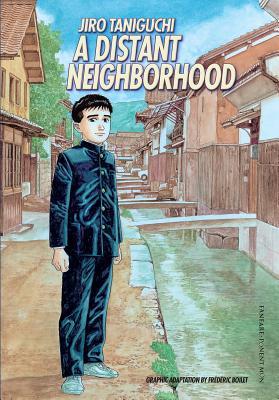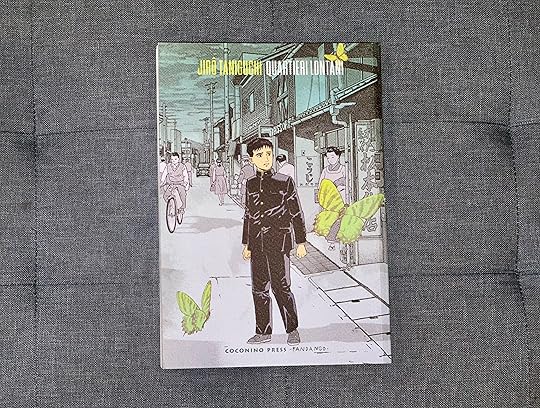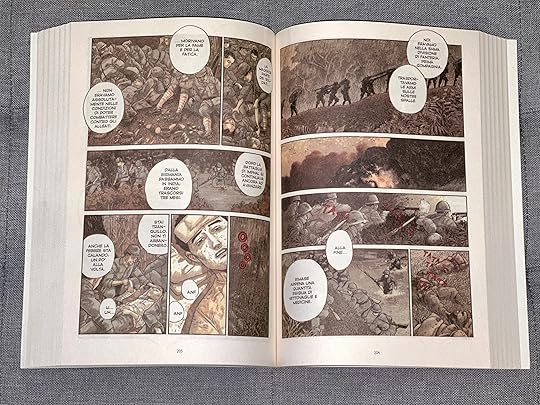What do you think?
Rate this book


408 pages, Hardcover
First published January 1, 1998

Hiroshi is a 48-year-old married man with two daughters. He lives an unpretentious kind of a life, made of work, good drinks with friends, days which looked all the same. But one morning he accidentally gets on the wrong train, ending up back at his birthplace. While he was visiting his mother’s grave, he falls asleep. And he awakens at the age of fourteen…
In the end we’ll never know if it was all a series of soothed reflections in subconscious that now appeared thanks to a vivid dream, or a time warp in line with the best sci-fi movies. It’s not important. This is a work made up of introspection, an analysis of his own past re-experiencing a delicate period. And at the end it’ll be time for the protagonist to take stock of his life. As the story advances Hiroshi tries several times to modify his own past, hoping to change some key events that have profoundly marked the lives of his loved ones. The change takes place, at the end. But in himself.
Vote: 8

Hiroshi è un uomo sposato di 48 anni, nonché padre di due ragazze. Non ha particolari pretese dalla sua vita abitudinaria, fatta di lavoro, qualche ubriacata con gli amici, giorni tutti uguali. Un giorno però inavvertitamente si trova sul treno sbagliato, e finisce per tornare nel luogo dove ha trascorso infanzia ed adolescenza. In visita alla tomba di sua madre, si addormenta. E si risveglia quattordicenne…
A conti fatti non sapremo mai se si è trattato di una serie di riflessioni sopite nel subconscio e venute a galla grazie ad un vivido sogno, oppure di una distorsione temporale degna dei migliori film di fantascienza. Non è importante. Questa è un opera fatta di introspezioni. Un analisi del proprio passato rivivendo un periodo delicato, ed alla fine per il protagonista sarà tempo di tirare le somme e fare un bilancio della propria vita. Più volte nel corso della storia Hiroshi tenta di modificare il proprio passato, sperando che cambino alcuni eventi che hanno segnato profondamente la vita dei propri cari. Il cambio avviene, alla fine. Ma in lui stesso.
Voto: 8
